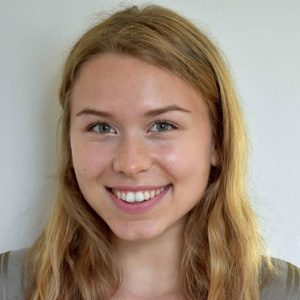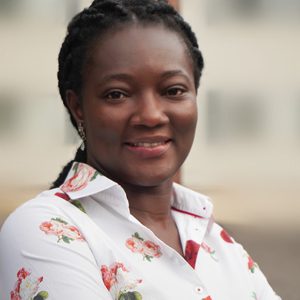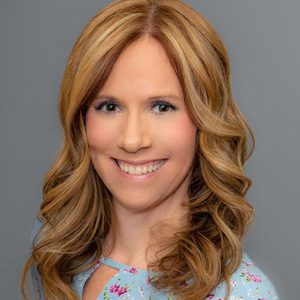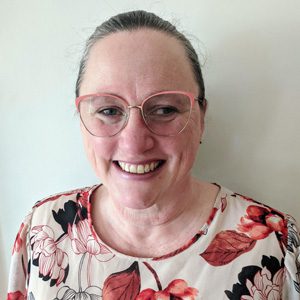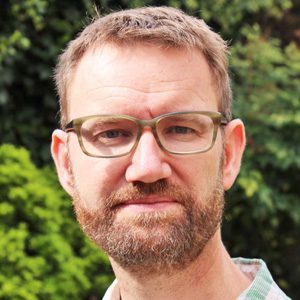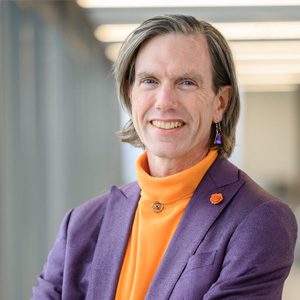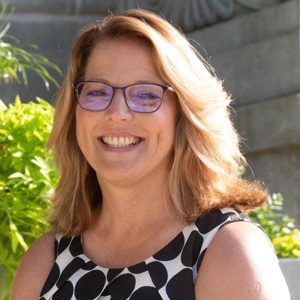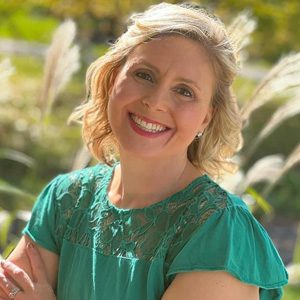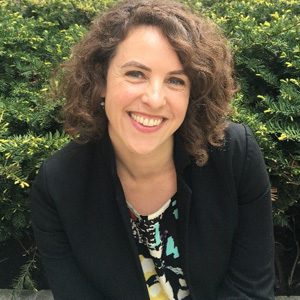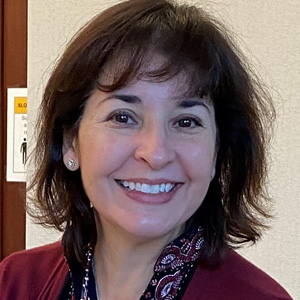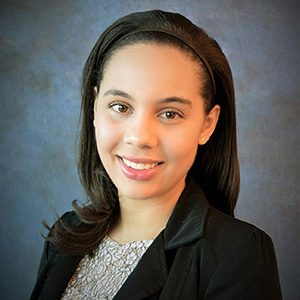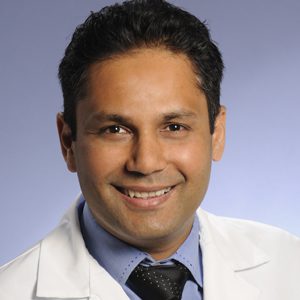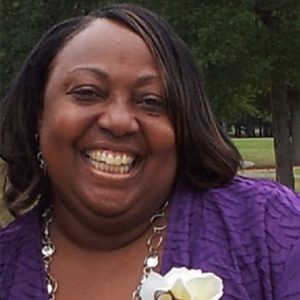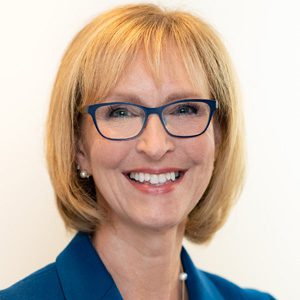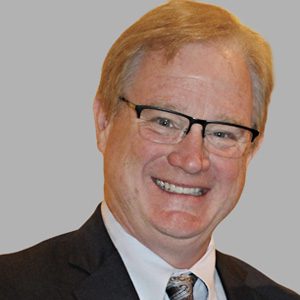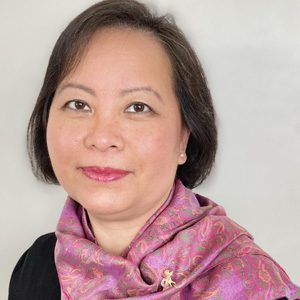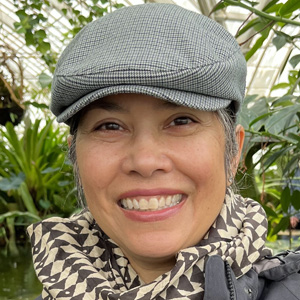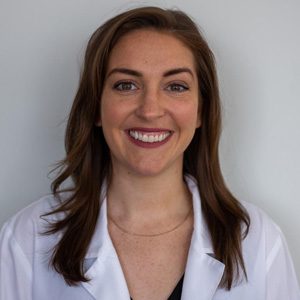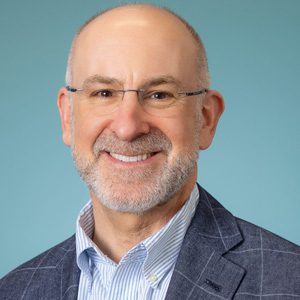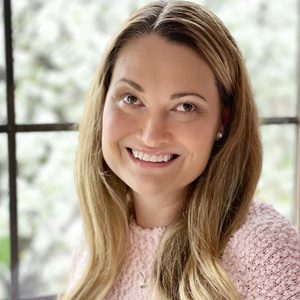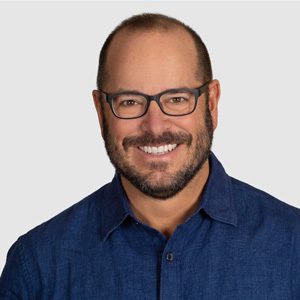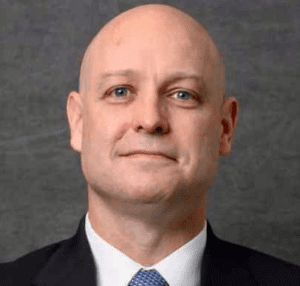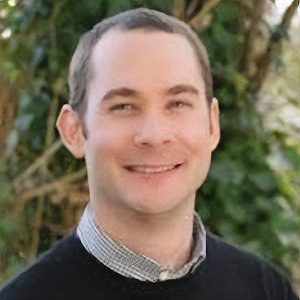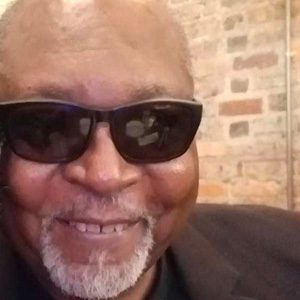Speaker and Moderator Bios
Christina Ambrosino
MD Candidate, Johns Hopkins School of Medicine
Christina Ambrosino is a third-year medical student at Johns Hopkins University School of Medicine. She is originally from Pittsburgh, PA and moved to Baltimore, MD to complete an undergraduate degree in neuroscience at Johns Hopkins University. Prior to medical school, Ms. Ambrosino worked at the Choice Program, a community-based not-for-profit organization that advocates for youth involved in the Baltimore juvenile justice system. In medical school, she has been drawn towards ophthalmology through experiences in programs that aim to expand community access to vision and eye services.
Ellen K. Antwi-Adjei, OD, MPH
Vision Science Graduate Program Trainee, University of Alabama at Birmingham School of Optometry
Dr. Ellen Konadu Antwi-Adjei is a Ghanaian optometrist, educator, and researcher. She holds a Bachelor of Science and a Doctor of Optometry degree from Kwame Nkrumah University of Science and Technology (KNUST), Ghana. She also has a master’s degree in public health (MPH), with a major in Community Eye Health, from the University of Cape Town, South Africa. She is currently pursuing a PhD in Vision Science at the University of Alabama at Birmingham (UAB).
Dr. Antwi-Adjei has a passion for reducing visual impairment and blindness, particularly in underserved communities. Her interest in public health, eye care accessibility, and research led her to accept an offer from the Queen Elizabeth Diamond Jubilee Fund to join an MPH program in South Africa. After the completion of her MPH, Dr. Antwi-Adjei returned to Ghana and secured a faculty position at KNUST where she had the opportunity to teach optometry students, conduct research, and render eye care services to communities. She is dedicated to the success of the next generation of optometrists, STEM education, and serves as a mentor to many students.
Dr. Antwi-Adjei’s PhD research focuses on evaluating the efficacy and patient perceptions of tablet-based and virtual reality perimeters in a telemedicine program in underserved at-risk populations in rural Alabama. She is also involved in the Alabama Screening and Intervention for Glaucoma and Eye Health through Telemedicine (AL-SIGHT) program, an ongoing clinical trial funded by the Centers for Disease Control and Prevention (CDC) which provides remote eye assessment to individuals in rural settings.
Dr. Antwi-Adjei’s research has been presented at various national and international conferences and has been published in peer-reviewed journals. She is part of the Prevent Blindness ASPECT Patient Engagement Program. She’s also a member of several organizations, including Women Graduates – USA/ International; American Academy of Optometry; Organization for Women in Science for the Developing World; Association of Research and Vision Ophthalmology; University Teachers Association of Ghana; Women in Science, Technology, Engineering and Mathematics; Ghana Science Association, Allied Health Professions Council; and Ghana Optometric Association.
She has received several honors and awards including being selected to participate in the Clinical and Translational Research Training at UAB and Global Mentorship Program, ARVO. She was awarded a Small Grant from Women Graduates–USA; UAB Blazer Fellow; UAB Graduate Student Government Professional Development and Travel Grant; Commonwealth Eye Health Consortium travel grant; and Dean’s best student Award, KNUST.
Dr. Antwi-Adjei is committed to developing eye care and advocacy programs to ensure that all people have an equal opportunity to receive high-quality vision care. She is in a unique position to serve as a leader, role model, and mentor, particularly for young female optometrists and vision scientists, and is dedicated to sharing her knowledge and insights with the future generation. This is a mission she holds close to her heart.
Sila Bal, MD, MPH
Cornea and Refractive Surgery Fellow, Harvard Ophthalmology
Dr. Sila Bal, MD, MPH is a cornea and refractive surgeon who has dedicated her career to improving the health of communities around the world. Dr. Bal received her medical degree and Master’s in Public Health from the University of Pennsylvania where she was awarded the United States Public Health Service Excellence in Public Health Award for her work on disparities in eye health both locally and globally. She then went on to complete her ophthalmology residency and cornea fellowship at Massachusetts Eye and Ear, Harvard Ophthalmology.
Dr. Bal has worked extensively in global health, collaborating with international organizations to implement health programs in low-resource settings. Her research interests include eye health disparities, the epidemiology of vision impairment, and the impact of social determinants on health outcomes.
Next year, Dr. Bal will join Moran Eye Center as a global ophthalmology fellow and hopes to continue her work in health equity through community-based service delivery models, advocacy, and capacity building. She hopes to continue to advocate for equitable access to healthcare and work to advance policies and strategies that promote health equity worldwide. In her free time, Dr. Bal loves to be outdoors and is an avid runner, surfer, and snowboarder.
Neil M. Bressler, MD
Editor in Chief, JAMA Ophthalmology
Professor of Ophthalmology, Johns Hopkins University School of Medicine
Dr. Neil M. Bressler graduated from the Johns Hopkins University School of Medicine in 1982 and completed an ophthalmology residency at Harvard Medical School’s Massachusetts Eye and Ear Infirmary in 1986. He joined the Wilmer Eye Institute (Department of Ophthalmology) faculty at the Johns Hopkins University School of Medicine and Hospital in 1988 and works in the Retina Division where he served as Chief from 2005 to 2018 with 19 full-time clinical faculty in retina.
Dr. Bressler has an endowed professorship as the inaugural James P. Gills Professor of Ophthalmology and has authored over 470 peer-reviewed publications with over 55,000 citations per Google Scholar. His academic pursuits included clinical trial research, wherein he has chaired multiple NIH-sponsored multicenter clinical trials, including the Submacular Surgery Trials and the NIH-sponsored DRCR Retina Network.
His commitment to service with the U.S. Department of Health and Human Services has included, since 2003, serving on the National Eye Institute’s Data and Safety Monitoring Committee for intramural clinical trials of the National Eye Institute of the National Institutes of Health through 2026, which he has chaired for over 17 years. He also has participated on the FDA Ophthalmic Devices Panel since 2000, and has served as Chair 2008 – 2011 and 2019 – 2024.
Since 2013, he has served as Editor in Chief of JAMA Ophthalmology and been a member of The JAMA Network Editorial Board of JAMA. Dr. Bressler also was President of the Macula Society in 2013 and 2014.
Independent of ophthalmology, Dr. Bressler served for nine years as Chair of the Johns Hopkins University School of Medicine’s Committee on Outside Interests, advising on policies on conflict of interest and conflict of commitment for the School of Medicine, and serves on the Johns Hopkins University School of Medicine’s Continuing Medical Education Advisory Board which he chaired for three years.
Outside of medicine, Dr. Bressler was Vice Chair of the Board of Trustees for the Interlochen Center for the Arts in Michigan, where he shared responsibility for engaging and inspiring people through excellence in educational, artistic and cultural programs in the arts. In 2016, he became only the 12th Life Trustee for the Interlochen Center for the Arts in 90 years, where he continues to serve as an emeritus trustee. He also serves on the Board of Directors of the JAEB Center for Health Research Foundation, Inc. and JAEB Center Research Trust, Inc., a freestanding, nonprofit coordinating center for multi-center clinical trials and epidemiologic research, focused on projects involving eye disorders or type 1 diabetes, and whose mission is to expand scientific knowledge and improve public health by designing and conducting world-class clinical trials and epidemiologic research.
Sara D. Brown, MPA
Director of Government Affairs, Prevent Blindness
Sara D. Brown has served as the Director of Government Affairs for Prevent Blindness since April 2017. Prior to her current role, Ms. Brown managed communications projects at a public affairs firm for the Defense Health Agency to promote their work on combat-related psychological health and traumatic brain injury. She has also represented the legislative and regulatory interests of medical group practice managers to Congress and the Administration as an Associate Director, Government Affairs with the Medical Group Management Association and, working with NRC Health, advised hospital executives on best practices to improve patient experience. She began her career in government and public policy working with two Members of the U.S. Senate for six years in both their state and Washington, DC offices. A Nebraska native, she earned a Bachelor of Arts in English and Political Science from the University of Nebraska-Kearney and a master’s degree in public administration, focusing on the role of government, nongovernmental organizations, and the private sector in defense and foreign aid policy, from Walden University. In her spare time, Ms. Brown is an avid paddleboarder and a self-trained distance runner, having completed over 15 marathons.
Jennifer Dexter
Vice President of Policy, National Health Council
Jennifer Dexter is the National Health Council Vice President of Policy. She has been working in the public policy field for more than 20 years. In her role, Ms. Dexter helps the National Health Council and its member organizations develop policy positions that seek to improve the lives of people with chronic diseases and disabilities, and advocates for these policies on Capitol Hill and within the executive branch. Prior to joining the NHC in September 2019, Ms. Dexter spent 2.5 years as a product director at Anthem, Inc. helping develop and shape Medicaid solutions that support people with disabilities, older adults and children in foster care. Prior to that, Ms. Dexter led Easterseals’ efforts with Congress annually to assure funding for all federal programs serving people with disabilities and older adults, including Easterseals’ federal programs. She worked with Congress to create and strengthen public policy affecting people with disabilities and older adults, particularly in long-term services and supports. Ms. Dexter earned her BA degree in political science from Washington University in St. Louis.
Julian Eaton, BSc, MSc, MBBS, MRCPsych
Mental Health Director, CBM Global
Assistant Professor, London School of Hygiene and Tropical Medicine
Dr. Julian Eaton is a public health psychiatrist with an interest in mental health in low resource settings. He is the Mental Health Director at CBM Global, and Assistant Professor at London School of Hygiene and Tropical Medicine. His work involves engaging with governments and other service providers to strengthen health systems and improve access to mental health care. His research focuses on integration of mental health into primary health care, stigma, user participation, as well as the intersection of mental health, eye care and NTDs. He is CEO of the SUCCEED program at LSHTM across Malawi, Nigeria, Sierra Leone and Zimbabwe, has worked on integrating mental health into primary care in Nigeria, and leads the Mental Health Innovation Network, www.mhinnovation.net, at the Centre for Global Mental Health in London.
Dr. Eaton lived and worked in Nigeria, and in Togo, between 2003 and 2016, and is now based in London.
Kevin D. Frick, PhD
Professor, Johns Hopkins Carey Business School
Dr. Kevin Frick is a professor at the Johns Hopkins Carey Business School with joint appointments in the Bloomberg School of Public Health and the School of Medicine. He has a longstanding interest in the business and economics of eye care and eye health and combines that with interests in epidemiology, ethics, and communications to produce work that is focused on clearly telling the story of using sustainable approaches to reduce the burden of disability and the inequitable outcomes for disability associated with vision impairment through approaches that are oriented toward viewing disability as a social issue.
Tami Garcia
President & CEO, Prevent Blindness Wisconsin
Tami Garcia has been with Prevent Blindness Wisconsin for more than 20 years and has more than 32 years of experience in the vision and healthcare field. Through her roles as Program Director and President and Chief Executive Officer at Prevent Blindness Wisconsin, Ms. Garcia has high-level oversight and leadership experience coordinating, managing, and developing vision health programs spanning the state of Wisconsin and serving more than 593,000 Wisconsin children and adults annually. Ms. Garcia is experienced in identifying health disparities in the community as well as developing and implementing sustainable, scalable programs which address these disparities and barriers to vision care.
Christina Gill
Global Family Coordinator, Know the Glow
Prevent Blindness ASPECT Patient Engagement Program Graduate
Christina Gill is a recent graduate of the Prevent Blindness ASPECT patient-engagement program. Ms. Gill became involved in the prevention of blindness when her youngest son Eli lost an eye to advanced Coats’ Disease in September 2021. Once her family had arrived on the other side of enucleation, Ms. Gill knew she wanted to help raise awareness. She is now a vital part of the Know the Glow team as their Global Family Coordinator. She holds a B.A in Organizational Leadership from Penn State University and currently works in tax, managing global tax compliance. Ms. Gill has a passion for connecting people together and sharing their stories. She has been able to connect Know the Glow with Rochester’s Flaum Eye Institute and has further strengthened Know the Glow’s connection with Dr. Carol Shields and her team in Philadelphia. Ms. Gill is also very passionate about finding families, sharing their stories, and as many resources as possible. She recently launched a project called Beyond the Glow, a resource page dedicated to helping families move forward after the glow has been detected.
Julie Grutzmacher, MSW, MPH
Director of Patient Advocacy & Population Health Initiatives, Prevent Blindness
Julie Grutzmacher grew up in Wisconsin and completed her undergraduate degree in Social Work in Minnesota. After college she joined the Peace Corps. Ms. Grutzmacher spent two years in Swaziland, Africa, where she lived and worked in a rural village providing HIV/AIDS education, mitigation, and community development services. It was during that experience that her interest in public health and health disparities was forged. After returning to the U.S., Ms. Grutzmacher completed her Master’s in Social Work at the University of Illinois at Chicago, and later was employed as a social worker in the Neonatal Intensive Care Unit (NICU) at Rush Hospital. This experience cemented professional goals relating to the elimination of health disparities and improvement of outcomes for marginalized populations.
After the NICU, Ms. Grutzmacher pursued a second Master’s Degree, this time in Public Health, while simultaneously working in population health management, providing care coordination and health education for high risk pregnant women in Chicago’s South Side. It was in this role that her passion for accessible and quality primary care was elucidated. She went on to co-create and manage a primary care leadership training program for multidisciplinary medical residents at the University of Chicago. She joined the Prevent Blindness team in May of 2020 as the Director of Patient Advocacy and Population Health Initiatives where she oversees the Center for Vision and Population Health (CVPH) and the ASPECT Patient Engagement Program. She is passionate about reducing all barriers to eye care.
Mercedes Hernández, MPH, CHES
Director of Child and Family Health, East Coast Migrant Head Start Project
Mercedes Hernández is the Director of Child & Family Health for East Coast Migrant Head Start Project, an early childhood education non-profit that serves 3,000 children and their families in 10 states. She is visionary and passionate about children’s health since her beginnings working with children with autism in early childhood education settings. She has over 20 years of experience in public health program management, community and migrant health centers, farmworker health and environmental justice. She has worked with grassroot organizations as well as state and federal government programs such as the NC Farmworker Health Program, the NC Community Health Center Association and the NC Farmworker’s Project, Inc. She was the principal investigator and project coordinator for a program that evaluated the potential health effects of toxic waste sites throughout the state at the Occupational and Environmental Epidemiology Branch of the NC Division of Public Health. She also advised the NC Department of Environmental Quality and the NC Department of Health and Human Services on risk communication and on expanding access to health services for historically marginalized populations.
Mercedes obtained a master’s degree with dual concentration in health policy and management, and community health education from the University of Massachusetts, Amherst, and a bachelor with dual concentration in Psychology and Communication from the same university. She is also a certified health education specialist. She serves on the North Carolina Pesticide Board and on the board of the North Carolina Congress of Latino Organizations as the treasurer.
Patrice Marie Hicks, PhD, MPH
Department of Ophthalmology and Visual Sciences, University of Michigan
Dr. Patrice Marie Hicks is a current post-doctoral research fellow in the Department of Ophthalmology and Visual Sciences at the University of Michigan. Dr. Hicks holds a Bachelor of Science degree in Chemistry from Eastern Michigan University, a Master of Public Health degree from Michigan State University, and a PhD in Population Health Sciences with an emphasis in Clinical and Translational Epidemiology from the University of Utah. Her research focuses on addressing health disparities in eye care and vision health. She is currently researching the neighborhood and built environment and eye health outcomes.
K. Thiran Jayasundera MD, MS
Paul R. Lichter Professor of Ophthalmology, University of Michigan
Dr. Thiran Jayasundera was born in Colombo, Sri Lanka and was raised in Auckland, New Zealand. He went to medical school and also did his residency in Ophthalmology at the University of Auckland. He married Shalini (a California native) during his residency. They moved to North America for fellowship training; first an inherited retinal diseases, electrophysiology and uveitis fellowship with Drs. John Heckenlively and Susan Elner at the University of Michigan followed by a vitreoretinal surgery fellowship at McGill University. Dr. Jayasundera is board certified by the American Board of Ophthalmology, the Royal College of Surgeons of Canada and the Royal Australia and New Zealand College of Ophthalmologists (RANZCO). He also has a master’s degree in Biostatistics from the University of Michigan.
Dr. Jayasundera has a clinical practice caring for patients with inherited retinal diseases, and leads the Inherited Retinal Diseases Program at the Kellogg Eye Center at University of Michigan. His research focuses on quantifying the difficulties, limitations, and distress experienced in the heterogeneous expressions of these conditions and intervening with therapeutics. During his K23 award, he developed retinal degeneration-specific and psychometrically validated patient-reported outcomes measures which capture and quantify disabilities of patients, specifically in categories of physiologically distinct forms of functional vision, and the distress that is experienced in variable phenotypic expressions. His long-term goal is to enhance the diagnosis and management targeted to meeting personalized needs of each patient, with a particular emphasis on minority populations.
Dr. Jayasundera led the optimization of Argus II implantation after FDA approval, and the Michigan PROs are used in natural history studies and clinical trials worldwide. He leads the evaluation of PRO performance in IRDs in the FFB consortium and is considered a highly collaborative investigator in the field. Dr. Jayasundera is also the Associate Chair in Strategic Implementation at the Kellogg Eye Center and leads the faculty led strategic planning for the eye center.
Dr. Jayasundera was trained in the Territorial Forces of the New Zealand Army and leads his career and life by the lessons taught during his military training: self-discipline, teamwork and time urgency. His wife and two boys (Nilshan and Sohan) are the center of his life. He enjoys playing tennis in his free time.
Carol Johnson
Prevent Blindness ASPECT Patient Engagement Program Graduate
Carol Johnson, a native of Jamaica, West Indies, served as the Economic Development and Employment Director for the Urban League of Onondaga County in Syracuse, New York, before relocating to Atlanta, Georgia in 1987. She currently works as an Executive Administrative Assistant at Cross Culture Church, where she has faithfully served for the last 30 years.
Recently diagnosed with dry macular degeneration and having a son with ocular albinism, Ms. Johnson has been a long-time advocate for her son by working with local public-school systems to have resources in place for low-vision students. With newly acquired visual challenges, Ms. Johnson recognizes the specific life aspects and mental challenges with having low vision and seeking treatment for such.
Married for over 30 years, Ms. Johnson is the mother of five adult children and grandmother of four boys. She enjoys singing alongside her husband Gregg in ministry and together they serve as life coaches for young adults. She is passionate about educating the public on vision loss, being a resource for the medical treatment process, and combating the mental challenges that can come with it.
Angela Kimball
Senior Vice President of Advocacy and Public Policy, Inseparable
Angela Kimball is the Senior Vice President of Advocacy & Public Policy at Inseparable. She is a nationally recognized expert in mental health policy who is passionate about mobilizing people to champion better care and fight inequities for people with mental health conditions. Ms. Kimball is a frequent contributor to national media on mental health policy and previously served as National Director, Government Relations, Policy & Advocacy at the National Alliance on Mental Illness (NAMI), where she helped advance significant legislation and investments in mental health services.
Ms. Kimball’s path in the mental health movement was inspired by her son’s path of recovery after a diagnosis of bipolar disorder. Her quest to find mental health care led her to early work as a family advocate, which propelled her to pursue deeper levels of policy and advocacy. As executive director of NAMI Oregon, her work led to the reinstatement of mental health and substance use coverage in the Oregon Health Plan, Oregon’s Medicaid program, and the overwhelming bipartisan passage of Oregon’s comprehensive mental health parity bill. In later roles, Ms. Kimball provided expertise on a broad range of policy issues across the country as director of state policy for NAMI’s national office and gained invaluable expertise helping implement Oregon’s transformative, community-governed integration of Medicaid health, mental health, substance use and dental services as an Innovator Agent with the Oregon Health Authority.
Ms. Kimball graduated from Linfield College in McMinnville, Oregon and has received multiple awards for her work on children’s mental health reform and mental health parity. In her spare time, she enjoys reading fiction, spoiling her cats and kayaking on the Deschutes River in Oregon.
Jim McGrann
Board Chair, Prevent Blindness
Jim McGrann has decades of executive experience in the vision and optical industry. As President and Chief Operating Officer at Percept Corporation, Mr. McGrann leads the company’s commercialization and growth strategies for Percept’s six business sectors. He most recently served as CEO of Professional Eye Care Associates of America (PECAA). Prior to that, he was President & CEO of VSP Global, former President of VSP Vision, and CIO of Marchon Eyewear. Mr. McGrann has a Bachelor of Science in industrial engineering from Columbia University.
Mayhoua Moua
Executive Director, Milwaukee Consortium for Hmong Health, Inc.
Mayhoua Moua currently serves as the Executive Director for the Milwaukee Consortium for Hmong Health, Inc. (MCHH). MCHH’s mission is to engage Southeast Asian Americans for positive change regarding chronic diseases and cancer health and wellness.
Ms. Moua came to the U.S. as a young refugee in the 1970s. She remembers how her family struggled to navigate for health and social services. She wants to make sure that newer refugees and immigrants don’t have to struggle like her family. Therefore, Ms. Moua has spent most of her career in Milwaukee serving the Southeast Asian community by helping them adjust to their new environment. She started out with refugee resettlement in housing and job placements, parenting, and health education.
Today, Ms. Moua and her team of Community Health Workers strive to help clients access quality healthcare by making sure they have adequate health insurance coverage, resources to assist with other social needs, and other methods for a healthy lifestyle.
Rochelle Neutra, MSN, FNP-BC
Patient; Provider; Advocate; Prevent Blindness ASPECT Program Graduate
Trained as a Nurse Practitioner, Rochelle Neutra has worked with low-income and underserved communities in the San Francisco Bay Area, splitting her time between advocacy, direct patient care in safety-net clinics and clinical research. She served as the Medical Clinic Director at the Native American Health Center in San Francisco, has conducted NIH-sponsored research at UC San Francisco and UC Berkeley and has served on several boards and advisory committees for nonprofits. Current projects include the Alameda Wellness Campus, which endeavors to build senior housing, a medical respite and a Federally Qualified Health Center for the Homeless in the San Francisco Bay Area.
In 2014, Ms. Neutra had a traumatic eye injury which resulted in a difficult to treat, rare eye condition. This event and subsequent health journey has reinforced the need for ongoing system improvement and innovation as she has had a crash course in the gaps in care, treatment and services for those living with chronic conditions
Kelly Scherer, OD
Director of Clinical Services, The Lighthouse Chicago
Dr. Kelly Scherer is a low vision optometrist who has devoted her career to improving the lives of individuals with visual impairments. She has served as the Director of Clinical Services at The Chicago Lighthouse for the past five years where she leads an interdisciplinary team of optometrists, occupational therapists, and mental health care providers.
After completing her Bachelor of Science in Biology at Wake Forest University, she earned her Doctorate from New England College of Optometry in Boston. With a strong interest in low vision, she pursued additional training in the field, completing a residency in advanced low vision and acquired brain injury vision rehabilitation at the Boston VA.
Throughout her career Dr. Scherer has worked with patients with complex and advanced ocular disease resulting in visual impairment. In addition to her clinical work, she has also made significant contributions to her profession and community through optometric education and board involvement. She is as an adjunct clinical assistant professor of optometry for three optometry schools working to grow and advance the field. She has served as a board member for Volunteer Optometric Services to Humanity Illinois, a non-profit organization that provides free eye care and vision correction to underserved populations in Illinois and around the world. Furthermore, she has been an active member on the associate board of CommunityHealth, a free health clinic in Chicago. Her contributions to public awareness and fundraising have helped the clinic to provide high-quality multidisciplinary care to uninsured Chicagoans living in poverty. She is a strong advocate for the importance of eyecare as a vital component of healthcare and supports efforts to improve access to healthcare for all.
Steven M. Silverstein, PhD
Professor of Psychiatry, Neuroscience, and Ophthalmology, University of Rochester Medical Center
Dr. Steven Silverstein is a Professor of Psychiatry, Neuroscience, and Ophthalmology at the University of Rochester Medical Center, and a member of the Center for Visual Science. He is also the George L. Engel Professor of Biopsychosocial Medicine, the Associate Chair for Research in Psychiatry, and the Director of the Center for Retina and Brain at the University of Rochester Medical Center. He is the former President of the Society for Research in Psychopathology (2017) and the former Chair of the American Psychological Association’s Task Force on Serious Mental Illness (2007-2009). Dr. Silverstein received his PhD in Psychology from the State University of New York at Buffalo in 1989 and completed his internship and a fellowship in child and adolescent psychiatry at Cornell Medical College from 1988-1990. Throughout his career he has developed innovative and effective treatment programs for people with, or at risk for, psychotic disorders. In addition to his program development efforts, he is internationally recognized as a leading researcher in the area of psychotic disorders. His primary research interests are in visual system changes in people with, or at risk for, serious mental illness. He is also interested in the effects of vision loss on mental health, and in interventions to assist people in coping with the emotional challenges associated with vision loss. Dr. Silverstein is the founder of the Eye-2-Eye peer-support program (Eye2Eye – Rutgers – Department of Psychiatric Rehabilitation & Counseling Professions), at which people with vision loss receive training in peer-support and provide information and counseling, at no charge, to others experiencing difficulties adjusting to changes in their vision. He has received many awards for his clinical, research, and teaching activities, including the United States Psychiatric Rehabilitation Association’s Armin Loeb Award for research in psychiatric rehabilitation (2008), the New Jersey Psychological Association’s Distinguished Researcher Award (2009), the American Psychological Foundation’s Alexander Gralnick Research Investigator Prize (2010), the Trailblazer Award from the Schizophrenia Special Interest Group of the Association for Advancement in Behavioral and Cognitive Therapies (2016), the Outstanding Provider Award from NAMI-NJ Chinese American Mental Health Outreach Program (CAMHOP-NJ) (2017 and 2018), and the Professional Award from the South Asian chapter of NAMI NJ (SAMHAJ) (2018).
Melissa Taussig, MA, LCPC
Private Practice
Prevent Blindness ASPECT Patient Engagement Program Graduate
Melissa Taussig provides adjustment counseling to those impacted by lifelong and newly acquired vision loss. Living with vision loss herself, Ms. Taussig recognizes that blindness and visual impairment affect the whole person, as well as the family system. She is grateful for the privilege to walk alongside others, offering empathy, practical guidance and empowering coping strategies. She feels passionate about cultivating connection and community through group work and retreats.
Ms. Taussig advocates for the importance of adjustment counseling in the rehabilitation process and enjoys collaborating with and providing consultation to interdisciplinary professionals. Her research interests have included Charles Bonnet Syndrome as well as the areas of stigma and uncertainty pertaining to vision loss. She endeavors to promote inclusion and affirm the dignity, value and worth of people of all abilities.
Jeff Todd
President & CEO, Prevent Blindness
Jeff Todd is President and Chief Executive Officer of Prevent Blindness, the leading eye health and safety patient advocacy organization in the United States dedicated to preventing blindness and preserving sight across all ages and eye conditions.
In addition to his work at Prevent Blindness, Mr. Todd is currently Chair-Elect of the Board of Directors of the National Health Council, and also chairs its Public Policy Committee. He also serves on the Advisory Committee to the Prevent Child Injury coalition; the Executive Committee of Vision 2020 USA, for which he formerly served as Chair; and the Advisory Board to Jonas Children’s Vision Care at Columbia University Medical Center. He is a past chair of the Vision Care Section of the American Public Health Association, has served on the Board of Directors of Chicago-based Howard Brown Health Center, and is a member of the District of Columbia (D.C) Bar Association.
Mr. Todd’s past experiences have crossed over government, non-profit, and for-profit sectors. Beginning his career in the Governor’s Office of the State of Indiana, he coordinated a statewide community development initiative supporting county-level health and safety interventions. He then moved to an executive position with the Center for Youth as Resources, overseeing field operations for this national organization focused on positive youth development. Prior to Prevent Blindness, Mr. Todd directed the National Youth Violence Prevention Resource Center, a comprehensive repository of federal resources aimed at curbing violence toward and among the nation’s young people.
Originally from Indiana, Mr. Todd currently resides in Chicago. He holds a J.D. from Indiana University School of Law–Indianapolis, a Master’s Degree in communications from Butler University, and a Bachelor’s Degree from the Kelley School of Business at Indiana University–Bloomington.
Dean A. VanNasdale, OD, PhD, FAAO
Associate Professor, The Ohio State University College of Optometry
Dr. Dean VanNasdale is an Associate Professor in the College of Optometry at Ohio State University. Dr. VanNasdale received his Doctor of Optometry degree from the Michigan College of Optometry at Ferris State University in 2003 and completed a cornea and contact lens residency at Indiana University in 2004. Dr. VanNasdale received a Master of Science degree in Clinical Research and a PhD degree in Vision Science from Indiana University in 2011.
Dr. VanNasdale has a research focus in advanced retinal imaging and visual function, with an emphasis on normal aging changes and pathological changes associated with ocular and systemic disease. The goal of this research is to distinguish normal aging changes from those related to sight-threatening pathology and to detect damage earlier in the disease process using both commercially available and laboratory-based instruments.
Dr. VanNasdale also has a research focus in population health data analysis. Using multiple, complementary datasets, Dr. VanNasdale studies associations between health determinants and vision impairment on a local, county, state, and national scale. The goal of this research is to improve insight into the underlying cause of vision impairment, identify common co-morbid conditions, and educate stakeholders on the magnitude of vision impairment. This analysis helps quantify the impact of vision impairment, identify areas where resources are needed to reduce vision impairment, and inform policy development.
Dr. VanNasdale teaches Public Health and Environmental Vision to first year optometry students, advises graduate students in the Vision Science program, and is an instructor in the Contact Lens Services at the College of Optometry.
Varshini Varadaraj, MD, MPH
Research Associate, Johns Hopkins Disability Health Research Center
Dr. Varshini Varadaraj is a Research Associate at the Johns Hopkins Disability Health Center. Trained in clinical ophthalmology, epidemiology and biostatistics, her research goals aim to improve the health of older adults with disabilities, with a focus on vision loss, using a data-driven approach. Her research focuses on examining disparities in health and health care access for people with disabilities, and her prior work has broadly concentrated on two interrelated areas: aging with vision loss and access to care.
Verian Wedeking
Program Director, OHSU Casey Eye Institute Community Outreach
Verian Wedeking is the Program Director for the OHSU Casey Eye Institute (Casey) Community Outreach Program, which provides free medical vision screenings at locations ranging from the state’s most remote corners to Portland’s urban core. As the program director, Mr. Wedeking is responsible for the strategic planning, development, business operations and oversight of the program’s mobile and community outreach initiatives.
With a background in academic healthcare administration, project management, volunteer management and diversity, inclusion and equity affairs, Verian joined OHSU in 2007 and the Casey Community Outreach Program in December 2015. With extensive experience managing community outreach, educational and clinical programs, he has most recently been elected to the Mobile Healthcare Association (MHA) Board of Directors, and has been the co-chair of the PNW MHA Regional Coalition since 2016, and the co-chair of the MHA Vision Interest Group since 2018. Additionally, he helped lead the development and design of a vision health navigator training for Community Health Workers in 2017, which was the first vision screening and education training focused on vision health to be approved by the Oregon Health Authority.
Mr. Wedeking is also a Prevent Blindness Certificated Vision Screener, and is the former chair, and current co-chair of the Oregon Vision Coalition, which seeks to provide a comprehensive approach to meeting the eye health needs of the state through fostering strategic partnerships.
Larry Woodard
Prevent Blindness ASPECT Patient Engagement Program Graduate
Larry Woodard resides in Raleigh, North Carolina. Mr. Woodard is the former Vice President of the Wake County Council of the Blind and served as a member at large on the Board of Directors of the North Carolina affiliate of the American Council of the Blind. Since losing his vision ten years ago, he has devoted much of his time and efforts to advocating and educating on behalf of people who are blind or visually impaired. He attended graduate studies for a Master in Health Services Administration (MHSA) degree at Central Michigan University, Master of Art degree in Clinical Psychology at North Carolina Central University, Graduate Certificate in Social Advocacy and Justice from Eastern Kentucky University, and in Genetics from Stanford University. Larry attends Texas A&M University School of Law Graduate Certificate program during the summer and he also is studying for his Doctor of Social Work degree at the University of Southern California (USC).
Mr. Woodard has addressed North Carolina legislators on the subjects of adjustment to vision loss and services for people who are blind, and legislators in Washington, DC on transportation issues impacting people who are visually impaired. He is a regular presenter on the topic of vision loss adjustment and the psychosocial aspects to various conferences and to Duke University Medical School students, faculty and physicians.
Mr. Woodard currently works with Rutgers University, Department of Psychiatry, Eye2Eye program. He has worked as the Director of Training and Education at the North Carolina Governor’s Institute and Senior Regional Trainer at the North Carolina Department of Health and Human Services. He has worked as the District Administrator for Durham County Drug Treatment Courts (Juvenile, Adults and Family court). While with the Governor’s Institute, Mr. Woodard created a college mentorship program for students studying behavioral health that was recognized as a best innovative program by the Annapolis Coalition and Harvard University. He is also involved with the Prevent Blindness ASPECT Program (self-advocacy) and is a Federal Health Equity Academy Fellow, along with being an American Foundation of the Blind Leaders Academy graduate. His hobbies include travel, music, live jazz concerts, festivals, and art museums.
The 2023 Focus on Eye Health Summit
About the Summit
Summit Presentations
Summit Media Release
Past Summits

